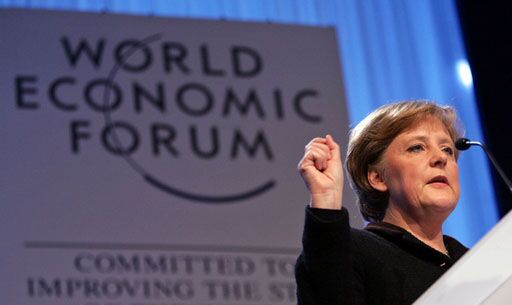
Germany’s Strength to Aid European Unity
Today in Salzburg, Austria, the place of Wolfgang Amadeus Mozart’s birth 250 years ago, 300 politicians, scientists, artists and media representatives are meeting to discuss the EU’s identity crisis.
Identity crisis indeed. In many ways, European unity has been a farce. Politically, the Continent is still floundering after the French and Dutch rejected the constitution that represented multiple months’ work by Eurocrats. Militarily, it is nowhere near capable of backing up its foreign policy with real strength. Actually, we could ask, what foreign policy? Consider its worthlessness in preventing Iran from pursuing nuclear weapons.
But wait. A solution may be presenting itself.
In a half-hour speech before a packed audience of policymakers January 26, German Chancellor Angela Merkel promised that Germany’s EU presidency in the first half of 2007 would be committed to fighting the cumbersome red tape that plagues EU institutions. She spoke about how “obsolete EU legislation should be abolished and that future EU directives should carry an expiry date” (EUobserver.com, January 26).
It is clear that Berlin wants a more efficient, more streamlined Europe. And it might be able to bring that about—especially since Germany’s economy appears to be on the upswing, and Europe’s political leaders are practically infatuated with the new German chancellor.
When strong, Germany has always been able to thrust its will on Europe, especially when working in tandem with the Vatican.
The future of European unification is inextricably bound up with the fortunes of its largest, most powerful member. The real political, military and economic engine of Europe will be Germany. That is where we must keep our eyes fixed.
“The idea of ‘Europe’ likely will continue eroding,” think-tank Stratfor asserted in a January 16 forecast, “but it will be greatly overshadowed by a new trend as traditional European power balances begin to reassert after a 60-year absence” (emphasis ours throughout).
From the end of World War ii until the period of Gerhard Schröder’s chancellorship, Germany has been in a “geopolitical deep-freeze” according to Stratfor: “[N]early everything Schröder did was couched in terms of the European interest (which meant mostly French interest). Europeanism was the only approved outlet for German nationalism.
“But now there has been a clean break. Angela Merkel is now in charge of Germany, and despite presiding over an unwieldy and uncomfortable coalition government, in her first few weeks on the job she already has emerged as the center-point of European affairs.”
Germany, Stratfor says, is once again “returning to its traditional role as the core European power.”
Economists are reporting a remarkable upswing in the German economy. The International Herald Tribune says it is “on the mend, with quickening growth, surging inverstor confidence, signs of a rebirth in consumer spending, and even a modest decline in unemployment” (January 17).
Part of this surge came with the new government Germany voted in, “which has helped lift the mood in this often pessimistic country.” Chancellor Merkel’s strong start has a lot people hoping she’ll be able to push through the country’s needed economic reforms.
Europe is already beginning to look to the success in Germany. The European Central Bank considers Germany’s growth to be strong enough that last month it raised interest rates for the first time in five years.
Again, historically it has been Germany’s strength or weakness that has dictated the geopolitical structure of Europe. Notice this statement from Stratfor: “When Germany is weak … other powers are able to rise and assert their interests. But when Germany is strong, it dominates the heart of the Continent and relegates its neighbors to powerlessness—until such time as they ally to crush it.”
This pattern has occurred at three major points in history—the three German “Reichs.” “Charlemagne’s Holy Roman Empire (the first iteration of what is now ‘Germany’) dominated Europe until it fell in Europe’s religious wars. Its death is what allowed Britain, France and Russia to rise as major powers. Imperial Germany played a similar dominating role from its rise in 1870 until its fall in World War i, when Weimar Germany’s weakness allowed a French and Russian renaissance. And of course Nazi Germany’s rise again put all eyes on Berlin, and its destruction led to the superpower standoff—and, eventually, to the rise of a ‘united’ Europe.”
Stratfor predicts that “2006 will mark a new turning point as Germany begins to ascend for afourth time.”
The Fourth Reich is rising before our eyes.
This development will prove to be instrumental in bringing Europe together. The trouble is, a Europe united under Germany will mean a superfederalist state that serves Germany’s interests—most assuredly not Germany serving Europe’s interests.
For more on Germany’s role in uniting Europe, read our free booklet Germany and the Holy Roman Empire.
